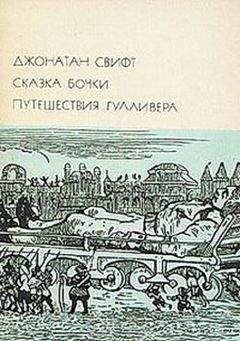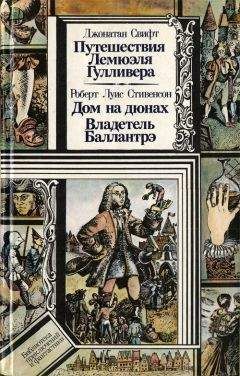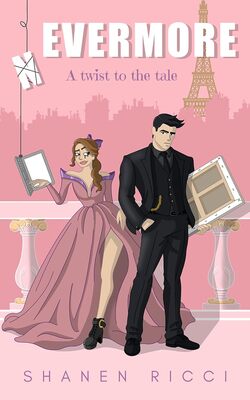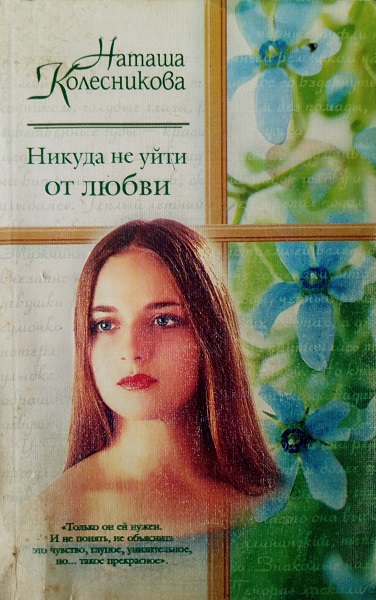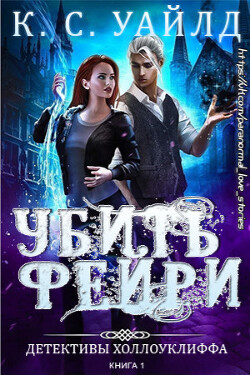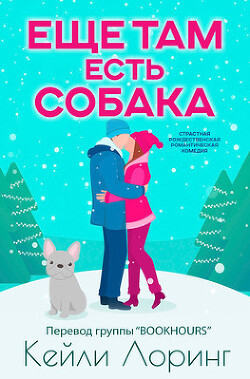Джонатан Свифт - Английский язык с Джонатаном Свифтом. Путешествия Гулливера

Помощь проекту
Английский язык с Джонатаном Свифтом. Путешествия Гулливера читать книгу онлайн
accompany [q'kAmp(q)nI], weather ['weDq], close /закрывать/ [klqVz]
Glumdalclitch and I accompanied the King and Queen on a journey to the south coast of the kingdom. That was at the beginning of the third year of my stay in that country.
I travelled as usual in my travelling box. I had ordered a hammock to be slung by silk ropes from the four corners of the roof. This made my journey much more comfortable and I would often sleep in my hammock while we were on the road. I had also had a small, square hole cut in the roof, so that I could have fresh air in hot weather and could close it when I wished. An iron ring had also been fixed to the roof to make the box easier to carry by hand.
Although the journey was comfortable (несмотря на то что путешествие проходило с комфортом) both Glumdalclitch and I were very tired by the end of it (и Глюмдалклич, и я были сильно утомлены к его концу). We were to spend some days at the King's palace near Flanflasnic (мы собирались провести несколько дней в королевском дворце близ Фланфласника; оборот be to используется при обозначении события, которое, должно произойти согласно плану или договоренности), about eighteen miles from the sea (/расположенного/ приблизительно в восемнадцати милях от моря).
I had a slight cold (у меня была легкая простуда; cold — холодный; холод; простуда; насморк), and Glumdalclitch was so ill (была так больна = так сильно заболела) she had to stay in her room for some days (что вынуждена была несколько дней оставаться в своей комнате). I longed to see the sea again (я страстно желал снова увидеть море). I pretended to be rather more ill (я притворился более больным; rather — скорее, больше; в значительной степени, довольно; пожалуй) than I really was (чем был на самом деле) and then I asked if I might be allowed the pleasure of fresh sea air (и потом спросил, не дозволят ли мне удовольствия подышать свежим морским воздухом). One of the young servants (одному юному слуге), who had sometimes looked after me before (который уже несколько раз присматривал за мной), was told to take me down to the sea (было велено отнести меня к морю).
cold [kqVld], longed [lONd], pleasure ['pleZq]
Although the journey was comfortable, both Glumdalclitch and I were very tired by the end of it. We were to spend some days at the King's palace near Flanflasnic, about eighteen miles from the sea.
I had a slight cold, and Glumdalclitch was so ill she had to stay in her room for some days. I longed to see the sea again. I pretended to be rather more ill than I really was and then I asked if I might be allowed the pleasure of fresh sea air. One of the young servants, who had sometimes looked after me before, was told to take me down to the sea.
Poor little Glumdalclitch was not at all happy about this (бедная маленькая Глюмдалклич была совершенно этому не рада = очень обеспокоена этим). She gave the servant all kinds of orders (она давала слуге всяческие наставления) about how to take care of me (о том, как /нужно/ обо мне заботиться). She even burst into tears when I waved good-bye (она даже расплакалась, когда я помахал /ей рукой/ на прощание; to burst — лопаться; взрываться; внезапно или бурно начинать /что-л./; to burst into tears — разразиться/залиться слезами, расплакаться). It was almost as though she knew what was about to happen (как будто она знала = предчувствовала, что должно было произойти; about — кругом; повсюду; недалеко; выражает готовность совершить какое-л. действие, близость какого-л. события).
It took the servant about half an hour to walk down to the sea (слуге потребовалось около получаса, чтобы спуститься к морю), carrying my box by hand (с моим ящиком в руке). When we arrived, I opened one of my windows (когда мы были там, я открыл одно из окон) and looked out at the sea for some time (и некоторое время смотрел на море/океан). I was not feeling very well (я чувствовал себя не совсем хорошо) and I told the servant that I would sleep for a while in my hammock (и сказал слуге, что я немного посплю в гамаке). The boy shut the window to keep out the cold (мальчик закрыл окно, чтобы мне было теплее: «не впустить холода»; to keep out — держать/ся/ вне /чего-л./; не впускать) and went off to explore some rocks nearby (и ушел осматривать скалы /находящиеся/ неподалеку; to explore — исследовать, изучать; разведывать).
hammock ['hxmqk], explore [Ik'splL], nearby [nIq'baI]
Poor little Glumdalclitch was not at all happy about this. She gave the servant all kinds of orders about how to take care of me. She even burst into tears when I waved good-bye. It was almost as though she knew what was about to happen.
It took the servant about half an hour to walk down to the sea, carrying my box by hand. When we arrived, I opened one of my windows and looked out at the sea for some time. I was not feeling very well and I told the servant that I would sleep for a while in my hammock. The boy shut the window to keep out the cold and went off to explore some rocks nearby.
I soon fell asleep (я скоро заснул). I'm not exactly sure (/и/ не вполне уверен = не знаю наверняка) what happened next (что произошло потом). The servant boy must have gone a little too far away (мальчик-слуга, должно быть, отошел слишком далеко). I was woken by a sudden, violent pull of the ring on the roof of my box (я был разбужен внезапным сильным рывком = проснулся оттого, что кто-то внезапно сильно дернул за кольцо на крыше моего ящика).
I could feel the box rising very high into the air (я чувствовал, как ящик поднимался очень высоко в воздух). Then it seemed to move along at amazing speed (потом он, казалось, понесся вперед с невероятной: «удивительной/поразительной» скоростью). I called out loud, but nobody answered (я громко закричал, но никто не ответил). Looking out of my windows (глядя в окна), I could see nothing but clouds and sky on three sides (я со /всех/ трех сторон не мог увидеть ничего, кроме облаков и неба). Then I realised that the noise over my head was the flapping of wings (потом я осознал/понял, что шум у меня над головой был хлопанием/взмахами крыльев; to flap — хлопать, шлепать, ударять /чем-л. гибким и широким/; махать /крыльями/).
violent ['vaIqlqnt], pull [pVl], cloud [klaVd]
I soon fell asleep. I'm not exactly sure what happened next. The servant boy must have gone a little too far away. I was woken by a sudden, violent pull of the ring on the roof of my box.
I could feel the box rising very high into the air. Then it seemed to move along at amazing speed. I called out loud, but nobody answered. Looking out of my windows, I could see nothing but clouds and sky on three sides. Then I realised that the noise over my head was the flapping of wings.
An eagle must have the ring of my box in its beak (должно быть, орел схватил клювом кольцо моего ящика: «имел = держал кольцо моего ящика в своем клюве»)! Soon it would let the box fall on some rocks (/и/ скоро он бросит ящик на скалы). When it had broken (когда он разобьется), the bird would pick out my body and eat it (птица вытащит мое тело и съест его).
After a little while, the flapping of the wings changed (спустя немного времени = скоро, взмахи крыльев изменились). It got faster (они стали чаще: «быстрее»). My box was tossed around (мой ящик закачался из стороны в сторону; to toss — бросать, кидать; /также to toss around/ бросать вверх и вниз, из стороны в сторону) like a shop-sign on a windy day (как магазинная вывеска в ветреный день; sign — знак; вывеска). There were some bumps (было = послышалось несколько глухих ударов; bump — глухой тяжелый удар; столкновение) and then suddenly I felt myself falling straight down (потом вдруг я почувствовал, что падаю отвесно вниз; straight — прямо, по прямой линии). I almost lost my breath (у меня перехватило: «я почти потерял» дыхание). There was a terrible splash (был = раздался страшный всплеск). Then I was in the dark for a minute (после этого я на минуту оказался во мраке). The box began to rise again (ящик начал опять подниматься). I could see light at the tops of my windows (в верхней части окон я увидел свет).
shop-sign ['SOpsaIn], straight [streIt], breath [breT]
An eagle must have the ring of my box in its beak! Soon it would let the box fall on some rocks. When it had broken, the bird would pick out my body and eat it.
After a little while, the flapping of the wings changed. It got faster. My box was tossed around like a shop-sign on a windy day. There were some bumps and then suddenly I felt myself falling straight down. I almost lost my breath. There was a terrible splash. Then I was in the dark for a minute. The box began to rise again. I could see light at the tops of my windows.
I had fallen into the sea (я упал в море). My box floated about five feet deep in the water (мой ящик плавал /погруженный/ футов на пять в воду; float — плавать, держаться на поверхности воды). I imagined that the eagle that flew away with my box (я предположил, что орла, который улетел с моим ящиком; to imagine — воображать, представлять себе; предполагать, думать, полагать) had been followed by two or three others (преследовали два или три других /орла/). He must have let it drop (ему пришлось бросить его). The plates of iron on the bottom of the box (железные пластины /укрепленные/ на дне ящика) had made it fall straight down (помогли ему упасть прямо = не перевернувшись) and had also kept it in one piece (и не дали ему разбиться на части: «сохранили его целым»; piece — кусок; часть; отдельный предмет; in one piece — в целости; целый /и невредимый/) when it hit the water (когда он ударился о воду).
I could see that very little water had come in (я заметил, что очень немного воды проникло внутрь). After a little while I got out of my hammock (спустя некоторое время я выбрался из гамака) and opened the hole in the roof to get some air (и открыл отверстие в крыше, чтобы впустить: «получить» воздуху). Then I thought of my dear little Glumdalclitch (после этого я вспомнил о моей милой маленькой Глюмдалклич). How she would suffer (как она будет страдать) and what would happen to her now (и что случится = будет с ней теперь). Perhaps she would have to leave the Court (наверное, ей придется покинуть двор = дворец) and what, I wondered, would the King and Queen say (и что же скажут король и королева; I wonder — /мне/ интересно; хотелось бы знать).
fallen ['fLlqn], floated [flqVtId], imagined [I'mxGInd]
I had fallen into the sea. My box floated about five feet deep in the water. I imagined that the eagle that flew away with my box had been followed by two or three others. He must have let it drop. The plates of iron on the bottom of the box had made it fall straight down and had also kept it in one piece when it hit the water.
I could see that very little water had come in. After a little while I got out of my hammock and opened the hole in the roof to get some air. Then I thought of my dear little Glumdalclitch. How she would suffer and what would happen to her now. Perhaps she would have to leave the Court and what, I wondered, would the King and Queen say.
I was afraid that wind or wave would turn my box over (я боялся, что ветер или волна перевернет мой ящик). If the glass in the windows broke (если бы /вдруг/ разбилось стекло в окнах), the water would come pouring in (вода хлынула бы вовнутрь; to pour — лить/ся/; хлынуть). I had no food and nothing to drink (у меня не было еды и питья: «ничего /что можно/ пить»). I couldn't lift up the roof of the box (я был не в силах поднять крышу ящика) and I could not squeeze through the small hole (и не мог протиснуться через маленькое отверстие; to squeeze — сжимать, сдавливать; втискиваться; протискиваться). All I could do (все, что я мог сделать) was to try to stuff something into some of the small holes (это попытаться заткнуть чем-нибудь: «засунуть что-нибудь в» маленькие дырочки) that were letting water into my box (которые впускали воду в мой ящик).

